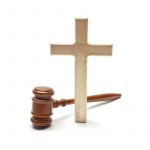In a major decision handed down on June 30, 2020, in Espinoza v. Montana Department of Revenue, the U.S. Supreme Court clarified the scope of religious liberty by requiring the state of Montana to apply tax credits equally to private religious schools.
Background
In 2015, the Montana legislature passed a law creating dollar-for-dollar tax credits for individuals who donate to organizations providing scholarship funds for private school students, including those attending religious schools. The Montana Supreme Court later struck down this law, saying that it conflicted with the state’s constitution that bars state aid for religious organizations.
Three mothers whose children received scholarship funds from the state’s tax credit program attended a private Christian school in Kalispell, Montana, sued the Montana Department of Revenue in state court, claiming violation of their religious rights. The trial court sided with the mothers, but the Montana Supreme Court overturned that ruling, finding that the tax credit program aiding religious schools violated the Montana constitution’s prohibition against state aid for religious organizations.
SCOTUS Decision
In a 5-4 decision written by Chief Justice Roberts, the U.S. Supreme Court overturned the Montana Supreme Court’s decision, saying that eliminating a taxpayer program simply because it could be used to fund religious organizations was a violation of the First Amendment protection for the free exercise of religion.
“A state need not subsidize private education,” Roberts wrote. “But once a state decides to do so, it cannot disqualify some private schools solely because they are religious.”
In its ruling, the Court relied heavily on its 2017 ruling in Trinity Lutheran Church of Columbia, Inc. v. Comer that found disqualifying recipients from a public benefit solely on the basis of religion imposed “a penalty on the free exercise of religion that triggers the most exacting scrutiny.”
Currently, there are 38 other states with constitutional provisions similar to the one struck down by the high court decision.
The Church Law Center of California advises religious and secular nonprofits on governance and risk management matters. To find out how we can assist your organization, call us today at (949) 892-1221 or reach out to us through our contact page.






